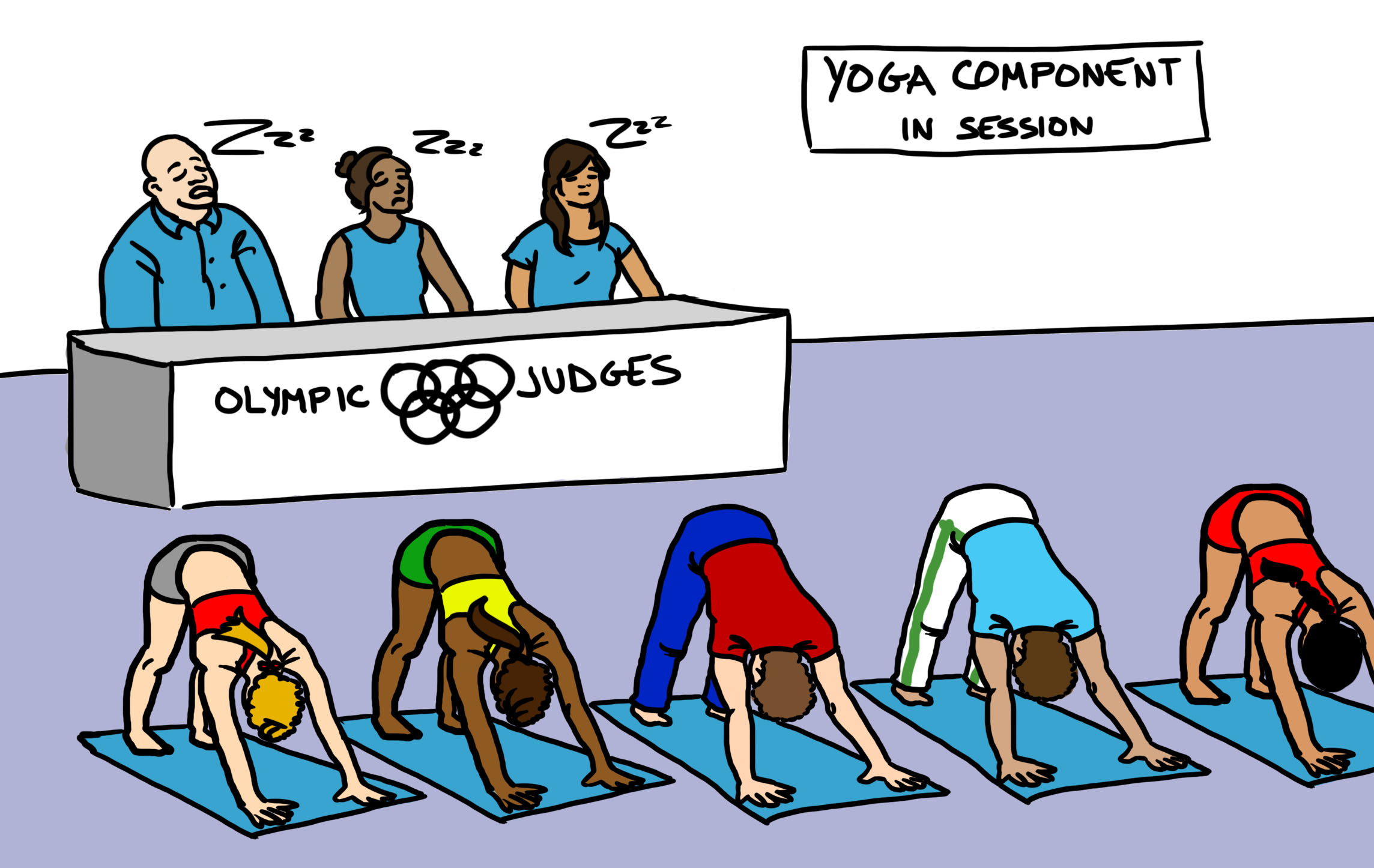
Get on your hands and knees. Push your hips up towards the sky, straightening out your arms and legs as you coax your body into an inverted “V.”
In yoga, the downward-facing dog stretches what feels like every muscle in your body; those of you who have practised yoga before can attest that this posture isn’t as easy as it looks.
Now imagine doing downward-facing dog with a panel of judges taking note of every flinch, wobble and crooked limb. Welcome to the world of yoga asana competitions, where people are ranked and awarded by how accurately they can perform a series of yoga postures.
Anyone who’s taken the most basic class knows that yoga is a personal practice. The point is not to compare your own abilities to anyone else in the room, as most yoga instructors will gently remind you during the session. Yoga requires that you focus inward, concentrating on how your body feels and adjusting yourself accordingly. It’s useless to silently despair about the middle-aged guy on the next mat who can headstand like a boss.
The idea of reducing yoga, a complex physical, mental and spiritual practice, into a ridiculous Survivor-like challenge is insulting to those who practise it.
Regardless of the oxymoron, “competitive yoga” lovers have big dreams: the Associated Press reported last week that the United States Yoga Federation is petitioning to have yoga asana recognized as an official sport at the 2016 Olympics in Rio de Janeiro.
Yoga asana markets itself as a sport rather than a practice and has drawn criticism from other yoga practitioners who feel that competitiveness goes against the nature of yoga itself.
Lisa Griffin teaches yoga at Concordia, where skill levels vary greatly from mat to mat. In her classes, Griffin says the emphasis is on achieving personal well-being rather than perfectly replicating a posture; sometimes, you have to tweak or adjust a pose to suit your own body.
All that aside, the problem with accepting yoga asana as an Olympic event lies with the so-called sport itself.
USA Yoga founder Rajashree Choudhury was quoted in the AP story as praising yoga for “teach[ing] people to be non-judgemental,” an incredibly contradictory statement when the yoga asana competitions she organizes are contests where people are, quite obviously, being judged.
Judging yoga is an inherently un-yoga-like thing to do, especially based only on the physical practice, which ranks below simply breathing properly in importance in the eight limbs (or levels) of yoga.
While certainly ambitious, what USA Yoga is gunning for is not impossible. The Olympics, despite their centuries-old roots, are surprisingly flexible; the number of sports featured since the first modern Olympiad in 1896 has grown from nine to 26 in this summer’s London games.
Yoga asana isn’t even the zaniest sport to make a bid at becoming an Olympic event―that distinction goes to pole dancing, described lovingly in a Sun Media article as “vertical gymnastics.”
If fans of yoga asana want to get themselves in the Olympics, go ahead, but change the name. How about “extreme endurance posing” instead?





The entire basis of your article is incorrect (ie. “yoga” as a whole being judged and or included in the olympics). There are several “limbs” of yoga.. Spiritual, Meditative, Physical and more. It’s the last, the “physical” (or asana) component of yoga that is being judged and nothing else. If you feel that it’s simply a name change to “extreme endurance posing” will be sufficient enough to make inclusion in the games acceptable to the general public, well then.. it’s simply a matter of semantics, isn’t it?